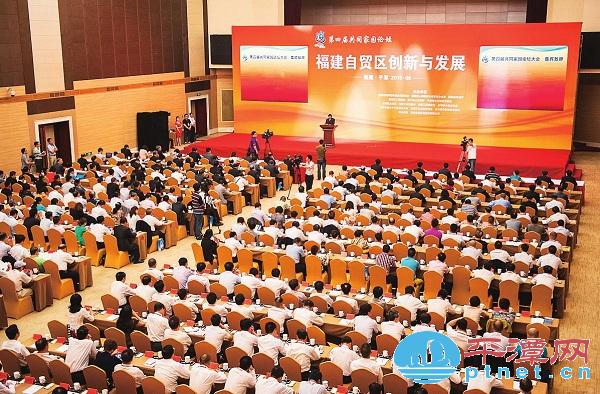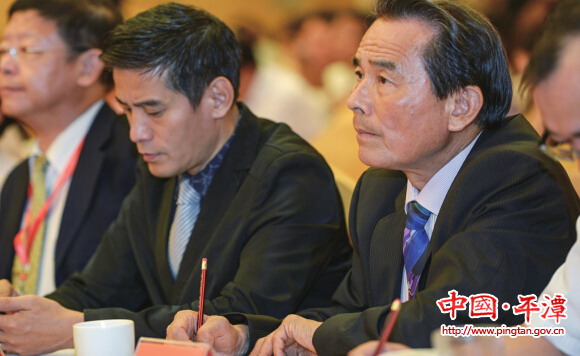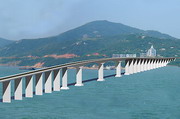Pingtan forum focuses on FTZ innovation (Part I)
( chinadaily.com.cn )
Updated: 2015-06-16
|
|||||||||
The fourth “Common Homeland” Forum was convened in the Pingtan Comprehensive Pilot Zone (PCPZ) in Fujian province on June 15.
 |
| The fourth “Common Homeland” Forum kicks off in Pingtan, Fujian province, June 15. [Photo/ptnet.cn] |
As part of the Straits Forum, this year’s “Common Homeland” Forum attracted more than 60 media outlets and some 300 politicians, entrepreneurs and scholars from across the Taiwan Straits to discuss innovation and development in the Fujian Pilot Free Trade Zone (FTZ).
The Fujian FTZ was officially inaugurated on April 21. It covers 118 sq km in Pingtan (43 sq km), Xiamen (43.78 sq km), and Fuzhou (31.26 sq km), concentrating on greater cross-Straits cooperation with Taiwan.
 |
| Experts attend the fourth “Common Homeland” Forum in Pingtan, Fujian province, June 15. [Photo/pingtan.gov.cn] |
Seven scholars and experts delivered speeches on Monday on topics ranging from Pingtan’s development to cross-Straits economic cooperation. The followings are their takeaways:
Yin Qimin (CEO of Taiwan-based Kuomintang's National Policy Foundation):
The essence of Taiwan’s Free Economy Demonstration Zone is to fully liberalize its economy. It is necessary to elevate the value of the industry supply chain by fostering five key industries – industrial innovation, international logistics, talent training, medical tourism and farm product distribution.
To achieve industrial innovation, authorities must enhance intellectual property management, integrate innovations, increase the technological content of products and explore new markets. If we can do all of these tasks at one particular zone it will lift the efficiency of the industrial chain as a whole and thus create more additional value.
Pingtan can cooperate with Taiwan in FTZ planning such as industrial development orientation and work division. It can also be a trailblazer in investment and operation pattern and strive for more preferential policies.
Wu Guopei (Manager of the Fuzhou Brach of People’s Bank of China, Director of Fujian Branch of the State Administration of Foreign Exchange):
The Fujian FTZ is one of China’s “experimental fields” of global integration, deepening reform and mechanism innovation. It has two major missions: boosting cross-Straits communication and implementing China’s Road and Belt Initiative.
Chinese authorities have designated Fujian as the core area of the modern Maritime Silk Road, given that Fujian is an important origin of the ancient maritime Silk Road and the ancestral home for numerous overseas Chinese.
Fujian should take advantage of FTZ and Silk Road strategies and make financial innovations including reforms, cross-Straits financial cooperation and improving financial supervision in FTZ.
The Pingtan FTZ will play a leading role in cross-Straits communications, facilitate investment and trade with Taiwan, and open itself up to countries and regions along the modern Maritime Silk Road.
Wang Zhen (Vice Director of Shanghai Academy of Social Science):
The Shanghai FTZ has achieved some accomplishments especially in mechanism innovation over the past year, which can use as a reference for the Pingtan FTZ.
The first is to enhance cooperation between different departments to cut red tape in international trade. Second is to advocate the “negative list” management mode, allowing overseas investors to enter more fields. The third is to improve the supervision system and make information more transparent.
I have four pieces of advice for the Pingtan FTZ: cut red tape, attract investment and professionals with key policies, cooperate with the Taiwan Free Economy Demonstration Zone and balance the development of industry and the city.






